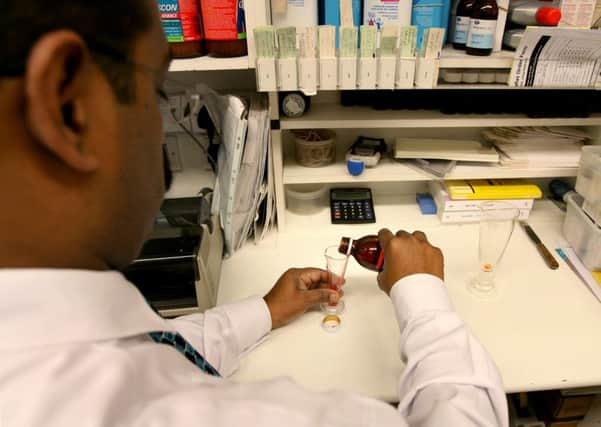Pharmacists should prescribe drugs to ease pressure on Scots GPs


Community Pharmacy Scotland (CPS), the body representing pharmacy owners throughout the country, said it supported the recommendation made by the Scottish Conservatives yesterday.
Announcing their Pharmacy Plan, the Tories also said opening chemists for 24 hours should be explored – a suggestion that CPS said should be treated carefully.
Advertisement
Hide AdAdvertisement
Hide AdThe plan recommended pharmacists should have access to “appropriate”patient records, should lead medicine reviews and have a greater clinical role in pharmacies, doctors’ surgeries, care homes and surgeries.
Speaking at Dears Pharmacy in Edinburgh, shadow health secretary Miles Briggs said that under the SNP GPs were in “crisis” and the pressure had to be relieved.
“Pharmacies are in an ideal position to help, and that’s why we want to see them become a key partner in primary health care.
“By increasing their capabilities and allowing them to become trained prescribers we can allow pharmacies to treat common ailments more speedily.
“By exploring the introduction of extended hours for pharmacies, including in 24-hour supermarkets, we can help provide immediate help around the clock.
“This would not only take pressure off our GPs, but also provide better patient care.”
In June NHS bosses in Greater Glasgow and Clyde were forced to close three quarters of the overnight out of hours services as there was a temporary shortage of GPs who were willing to work.
Adam Osprey of CPS said: “We are all for staff being trained to prescribe medication with the right model.
Advertisement
Hide AdAdvertisement
Hide Ad“Very often you come across someone with an infection and you know exactly what it is and know exactly what it means. But you have to send the person through the NHS, which takes a couple of days, and they come out the other side to get exactly what the pharmacist knew they were going to get anyway.”
On the idea of 24-hour pharmacies, Mr Osprey said there would have to be demand for the change.
He said: “It could work in some places but not in others. It is about tailoring the pharmacies in terms of provision to the need. But it would need to be done carefully. Opening a business for 24 hours has implications for costs.”
The Scottish Government said it had put forward plans for increasing access to pharmacies last year and supported providing pharmacists with clinical skills.
A spokesman for Health Secretary Jeane Freeman said: “We are pleased to have support from the Scottish Conservatives for our approach.”